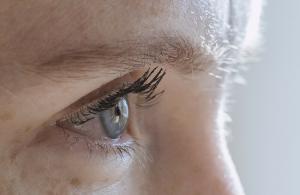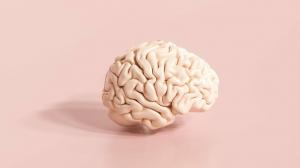Hot-cold empathy gap: what it is and how this bias affects us
Do you know what the hot-cold empathy gap is? This is a cognitive bias through which we underestimate the influence of visceral (emotional) drives on our own behaviors, preferences, and attitudes. This bias was coined by George Loewenstein, a psychologist at Carnegie Mellon University.
In this article we will tell you what this bias consists of, what types of it exist and how it can influence our decision-making.
- Related article: "Cognitive biases: discovering an interesting psychological effect"
hot-cold empathy gap
The hot-cold empathy gap bias has to do with how we feel; Thus, our understanding of things depends on the state in which we are submerged. That is to say, if we are angry, it is difficult for us to imagine ourselves calm, but also if we are in love; in this case, it is hard for us to imagine not being so in the future.
In other words, what we feel determines our understanding of things, and makes it difficult for us to see them differently at that precise moment.
In this line, the hot-cold empathy gap translates into a
inability to foresee how we will behave in a certain emotional (or even passionate) state, even though we have already experienced it before. This bias can lead us to make mistakes, or to make decisions that we later regret.Bias directions
On the other hand, the hot-cold empathy gap can go in two directions. Let's analyze each of them:
1. from hot to cold
People are said to be in a "hot state" when they are influenced by an emotional state (ie, when visceral factors come into play).
Under this state, have difficulty fully understanding the extent to which their behavior is being driven by what they are feeling. Instead, they think that what they actually do in the short term is determined by what they want in the long term.
2. from cold to hot
In the opposite state, from cold to hot, people are in a "cold state." But what does this mean? Who manifest difficulties to imagine themselves in "hot states" (emotional).
Thus, contrary to what happens in the previous case, they underestimate the force that their visceral impulses have in their behaviors or in their decision making. What consequences does this have? A lack of preparation when emotional impulses arise.
- You may be interested in: "The 8 most important psychological effects"
Guys
The hot-cold empathy gap can also be classified according to two parameters: its “location” in time (past or future) and whether it involves intrapersonal or interpersonal events.
1. intrapersonal prospective
In this case, we talk about the difficulties people have in predicting our own future behavior, when we find ourselves in an emotional state different from the one that would correspond in the future.
That is, and with a simple example; If we are very sad now, it is difficult for us to imagine being very happy in the future.
2. intrapersonal retrospective
In this second type, retrospective, the temporal location is located in the past; So, it's about the difficulties that we manifest to remember (or understand) certain behaviors that we had in the past, in a different state than the current one.
That is, if these behaviors occurred in a different emotional state than now, we may have difficulty remembering or even understanding them.
3. interpersonal
Finally, the third case of hot-cold empathy gap, according to the interpersonal parameter, would be the following: the attempts we make to evaluate both the behaviors and preferences of others, in a state different from ours. Well, according to this bias, we would have difficulties in evaluating them.
visceral factors
We've talked about gut factors (or gut drives) to explain the hot-cold empathy gap. But what exactly are these factors?
The word visceral comes from viscera, from the Latin “viscera”, which means “entrails”. It also denotes other meanings, such as "maternal womb" (uterus), "the intimate of the heart" or "instincts". Visceral also means intense and irrational, and is frequently related to primitive emotional states.
Thus, visceral factors include different states, such as: sexual arousal, thirst, hunger, pain, strong emotions... When we make decisions, visceral factors influence much more than we think (That is why it is often better to stop, calm down and wait for this state to "pass", to decide in a more serene way and more in line with what we really want).
When we are immersed in a visceral state, we speak of being in a state of heat (as we have already mentioned); It is under this type of state that our mind will tend to ignore many of the stimuli necessary to decide sensibly.
We must bear in mind that states of heat are also related to hasty decision-making, impulsiveness, and the possibility of losing control.
How to deal with the hot-cold empathy gap?
Anticipating it, or rather, the hot or cold state in which we will find ourselves. The fact of anticipating, will allow us to anticipate how we could behave in such a situation, and even take action before plunging into that state.
sexuality in the young
It seems interesting to answer this question, because This bias is of great importance in issues such as sexuality (especially among adolescents and young people).
Isn't it true that the fact of being about to perform the sexual act plunges us into a passionate state? And that many young people, faced with this state, "get carried away" and do not use a condom? For this reason, the solution is to always carry it by hand, and think that we must use it before reaching this visceral state.
In a cold state (away from the sexual moment) we can think that we will act in a certain way in the state hot (at the time of the sexual act), but it is difficult to predict, and that is precisely what the empathy gap talks about cold-hot.
Definitely; we will never act the same from a cold state as from a hot one, and what we can think we will do in each of these states, will always be far from reality.
Final reflection
In short, what the hot-cold empathy gap denotes, as its name suggests, is a lack of empathy in certain situations. Thus, what this bias says is that in a "cold" state, we will not predict very effectively how we would react in a "hot" situation, and vice versa. In this sense it will be difficult for us to be right.
Surely most of us have ever experienced this bias, since, let's not fool ourselves; It is not the same to hypothesize about something that we feel at the present moment, than to hypothesize what we would do in a state different from the current one (for example, what would you do if you got pregnant very young? Would you abort? Who knows… this bias may be influencing you).
Bibliographic references:
- Ariely, D. (2017). The traps of desire. Mexico: Booket
- Loewenstein, George (2005). "Hot-Cold Empathy Gaps and Medical Decision Making" (PDF). Health Psychology. 24(4, Suppl.): S49 – S56.
- Cut from Kohan, N. & Macbeth, G. (2006). Cognitive biases in decision making. Argentine Catholic University. Faculty of Psychology and Education. Department of Psychology, 2(3).
- Nordgren, Loran F.; Banas, Kasia; MacDonald, Geoff (2011). "Empathy Gaps for Social Pain: Why People Underestimate the Pain of Social Suffering". Journal of Personality and Social Psychology. 100 (1): 120–128.
- Van Boven, sheet; Loewenstein, George; Dunning, David; Nordgren, Loran F. (2013). "Switching Places: A Double Judgment Model of Empathy Gaps in Emotional Perspective Taking" (PDF). In Zanna, Mark P.; Olson, James M. (eds.). Advances in experimental social psychology. 48. Academic Press pp. 117-171.


